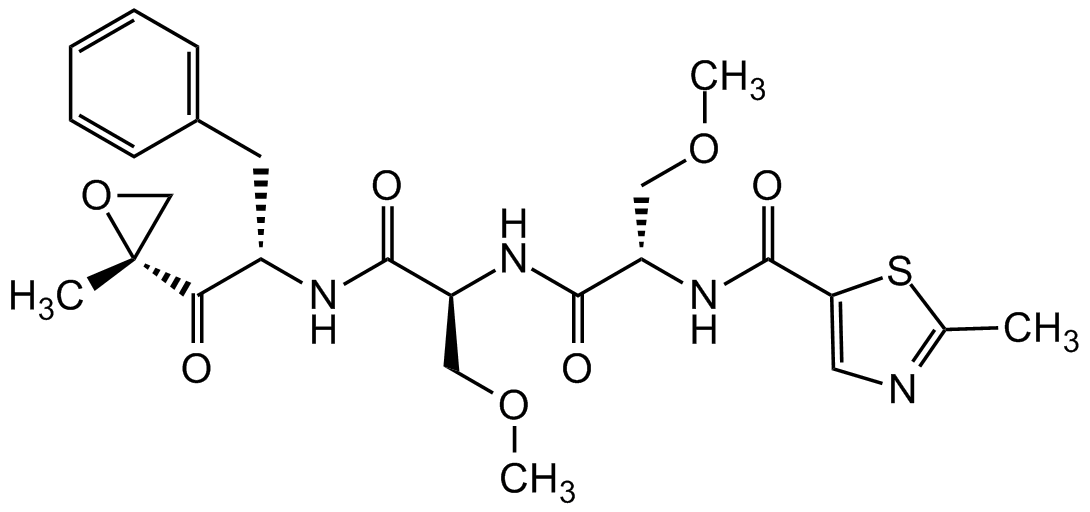
Chemical Structure
Oprozomib [ONX 0912] [935888-69-0]
AG-CR1-3672
CAS Number935888-69-0
Product group Chemicals
Estimated Purity>98%
Molecular Weight532.6
Overview
- SupplierAdipoGen Life Sciences
- Product NameOprozomib [ONX 0912] [935888-69-0]
- Delivery Days Customer10
- CAS Number935888-69-0
- CertificationResearch Use Only
- Estimated Purity>98%
- Hazard InformationWarning
- Molecular FormulaC25H32N4O7S
- Molecular Weight532.6
- Scientific DescriptionChemical. CAS: 935888-69-0. Formula: C25H32N4O7S. MW: 532.6. Synthetic. Potent orally bioavailable irreversible proteasome inhibitor. Analog of Carfilzomib (AG-CR1-3669). Targets the chymotrypsin-like beta5 subunit of the constitutive 20S proteasome (IC50=36nM) and the beta5i subunit [LMP7] of the 20S immunoproteasome (IC50=82nM). Anticancer compound effective in cell-based assays, in xenografts and against multiple myeloma in vivo. In vitro, induces cell cycle arrest and apoptosis in human cancer cell lines including multiple myeloma, as well as in bortezomib resistant multiple myeloma cells. Shown to have anti-angiogenic activity. Has potential applications in certain types of cancer as well as other diseases that require proteasome activity. - Potent orally bioavailable irreversible proteasome inhibitor. Analog of Carfilzomib (Prod. No. AG-CR1-3669). Targets the chymotrypsin-like beta5 subunit of the constitutive 20S proteasome (IC50=36nM) and the beta5i subunit [LMP7] of the 20S immunoproteasome (IC50=82nM). Anticancer compound effective in cell-based assays, in xenografts and against multiple myeloma in vivo. In vitro, induces cell cycle arrest and apoptosis in human cancer cell lines including multiple myeloma, as well as in bortezomib resistant multiple myeloma cells. Shown to have anti-angiogenic activity. Has potential applications in certain types of cancer as well as other diseases that require proteasome activity.
- SMILESO=C([C@]1(CO1)C)[C@H](CC2=CC=CC=C2)NC([C@H](COC)NC([C@H](COC)NC(C3=CN=C(C)S3)=O)=O)=O
- Storage Instruction-20°C,2°C to 8°C
- UNSPSC12352200

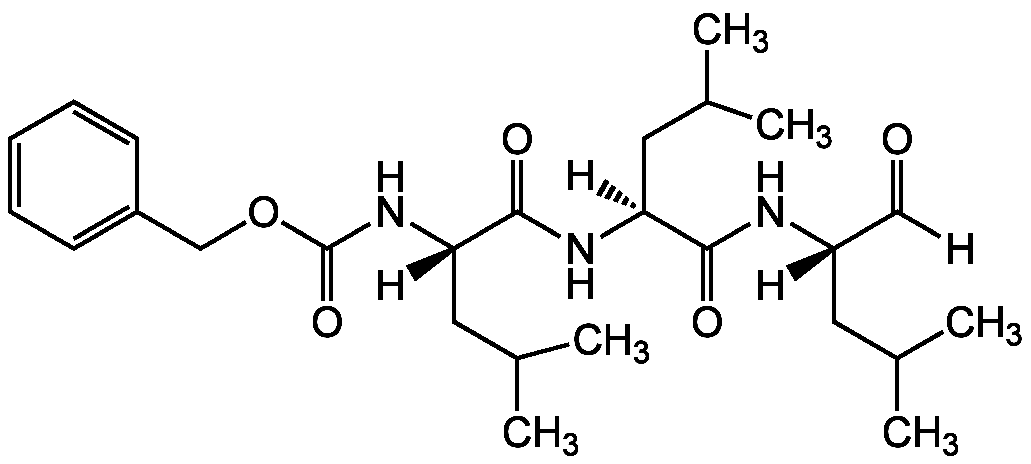
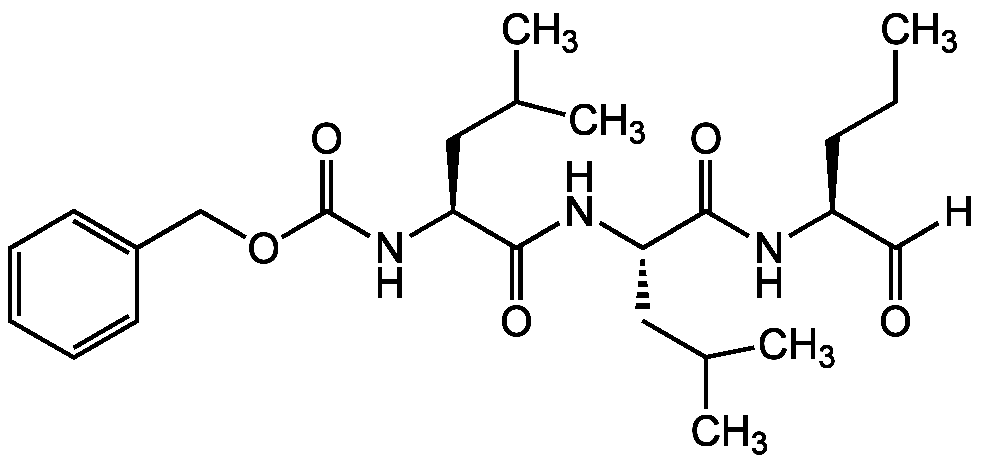
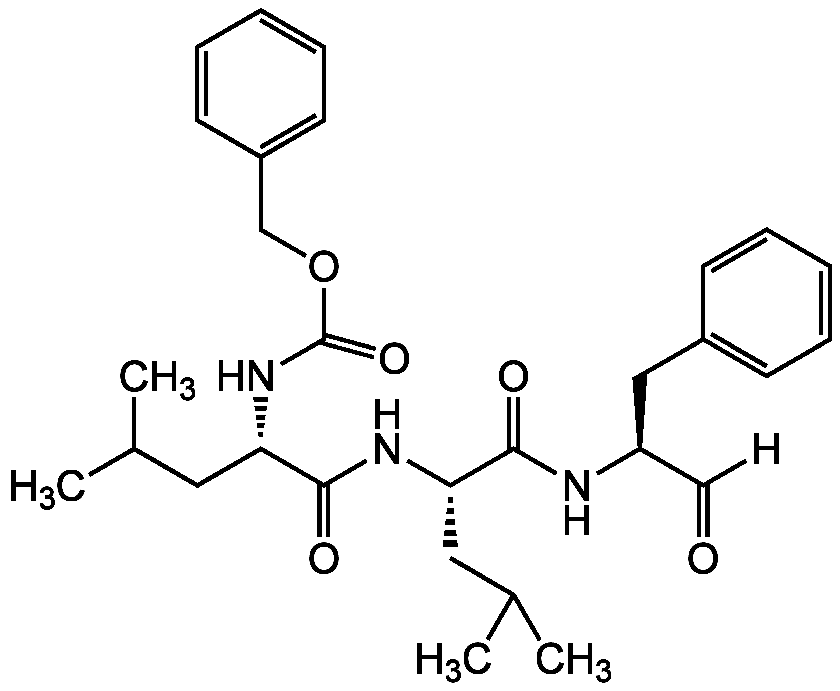
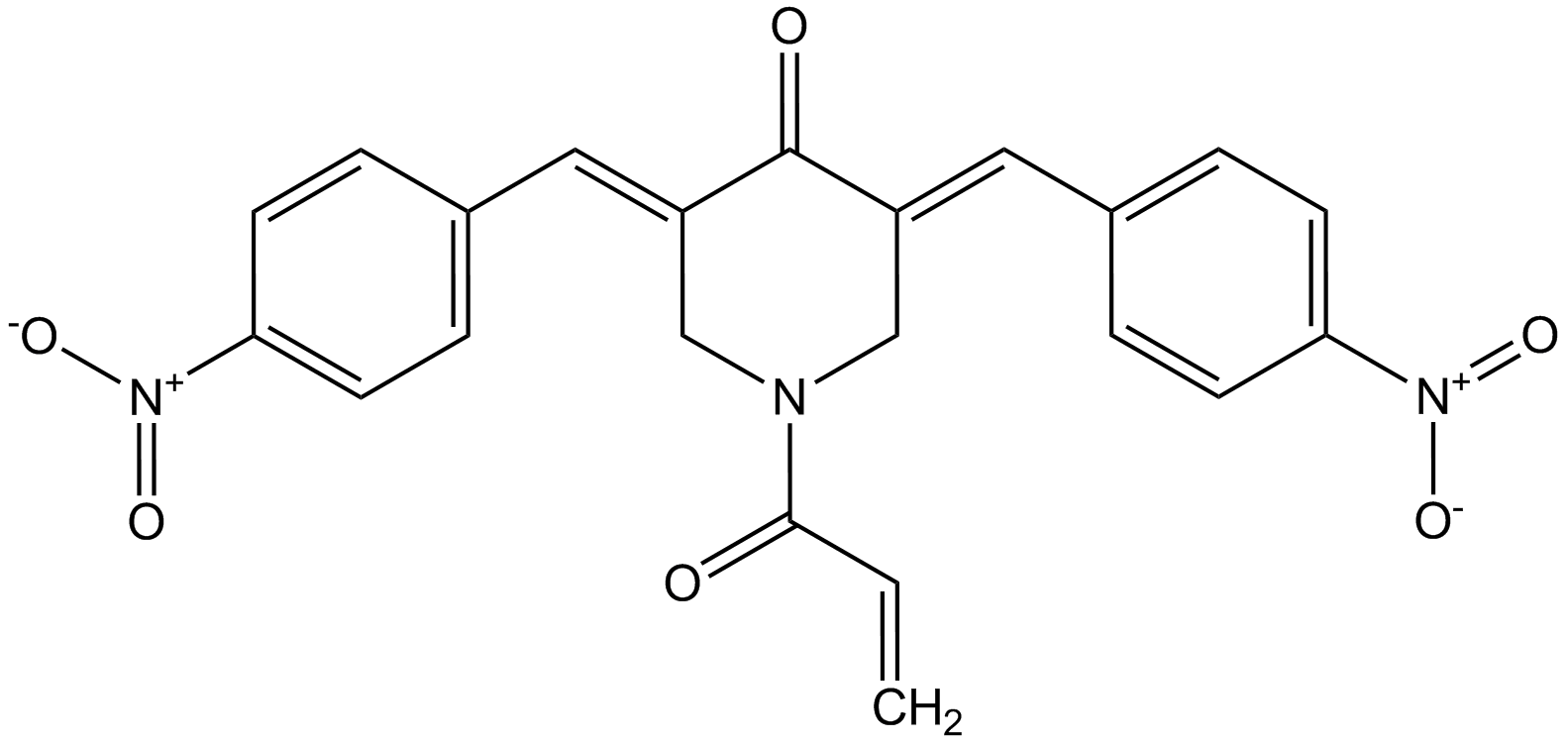
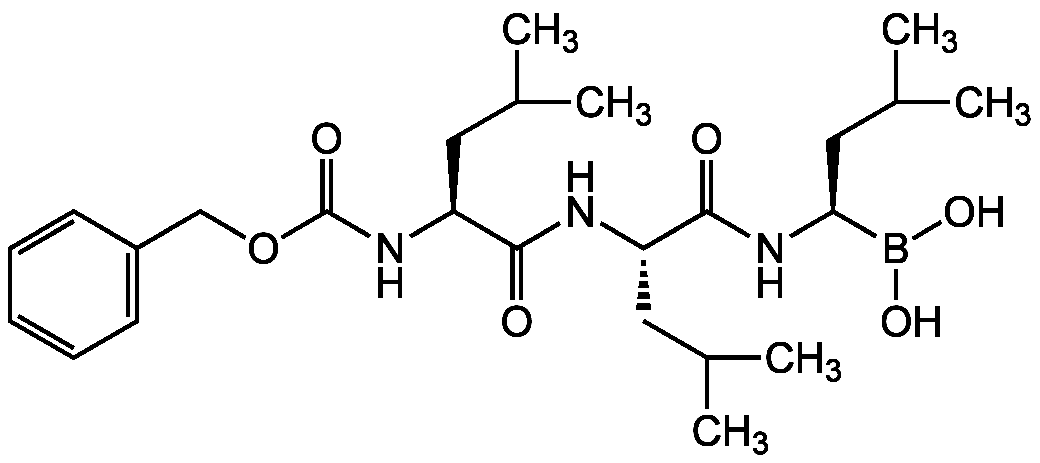
![Oprozomib [935888-69-0] [935888-69-0]](https://www.targetmol.com/group3/M00/37/F3/CgoaEGayVBaEQhhwAAAAAC2bxtA384.png)